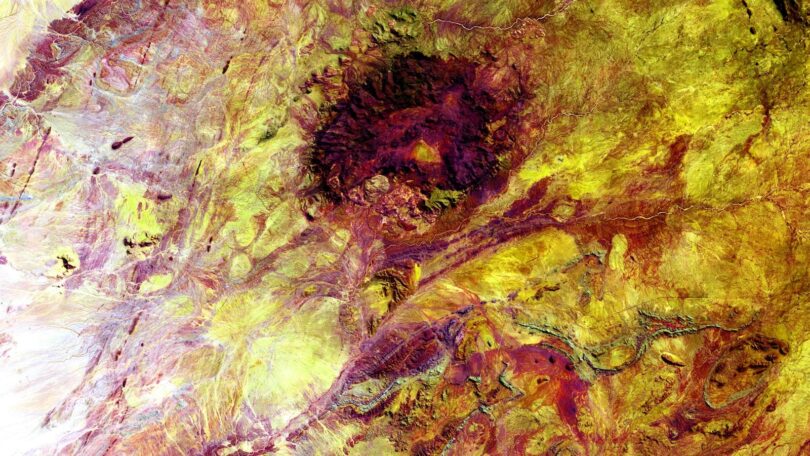Delve into the intricate world of coffee’s historical narrative as we critically examine its complex journey through time. From its mysterious origins to its global rise in popularity, coffee’s history is a fascinating blend of cultural, social, and economic influences that have shaped the beverage we know today. Join us as we navigate through the twists and turns of coffee’s chronicles, uncovering the hidden stories behind this beloved drink.
1. Tracing the Roots: Understanding Coffee’s Origin and Early Consumption
The history of coffee is a rich tapestry woven with threads of mystery and tradition. From its mythical origins in Ethiopia to its early consumption in the Arabian Peninsula, coffee has captivated and inspired individuals for centuries. The complex journey of this beloved beverage is filled with intrigue and depth, making it a fascinating subject of historical inquiry.
As coffee made its way across continents and oceans, its influence spread like wildfire, shaping cultures and economies along the way. The global trek of coffee is a testament to its enduring allure and universal appeal, solidifying its place as a beloved commodity in a rapidly changing world.
Exploring the economic intricacies of coffee reveals a dark brew of exploitation and power dynamics, highlighting the complexities of trade and commerce in the modern age. The economic influence of coffee is vast and far-reaching, illustrating the interconnectedness of global markets and the enduring legacy of colonialism in shaping our world today.
2. The Global Trek: How Coffee Spread across Continents
The global trek of coffee is a fascinating tale that spans continents and centuries, tracing its roots from the Ethiopian plateau to the bustling cafes of Europe and beyond. Coffee’s journey was not just a simple migration of beans, but a complex web of trade routes, colonial expansions, and cultural exchanges that shaped the way we consume and perceive this beloved brew today.
As coffee spread across continents, it quickly became a commodity of great economic importance, fueling trade networks and influencing global markets. The demand for coffee led to the establishment of plantations in regions such as Latin America and Southeast Asia, where its cultivation became a lucrative industry with far-reaching social and environmental implications.
The story of coffee’s global trek is a critical reminder of the interconnectedness of our modern world, where the simple act of enjoying a cup of coffee carries with it a rich history of exploration, exploitation, and innovation. Its journey continues to shape our societies and economies, making us question the sustainability of our consumption habits and the impact they have on the planet.
3. The Dark Brew: Unravelling the Intricacies of Coffee’s Economic Influence
Coffee, often referred to as the “dark brew,” holds a complex web of economic influence that spans across centuries. From its origins as a simple beverage consumed in Ethiopia to its now global domination, the economic intricacies of coffee are vast and often shrouded in mystery. The coffee trade, with its supply chains stretching from remote coffee farms to bustling city cafes, plays a significant role in shaping the global economy.
The fluctuating prices of coffee beans, the impact of climate change on coffee production, and the inequalities within the coffee industry are just a few factors that contribute to the complexity of its economic influence. Understanding the economics of coffee involves unraveling a tangled web of international trade agreements, labor rights issues, and market trends. As consumers, it is vital to be aware of the economic forces at play in the coffee industry and to support initiatives that promote sustainability and fair trade practices.
4. Sociocultural Impact: Coffee as a Catalyst of Modern Society
Coffee’s history is a tapestry woven with threads of intrigue, resilience, and adaptation. From its humble beginnings in Ethiopia to its ubiquitous presence in modern society, coffee has served as a potent catalyst for social and cultural change. Its journey across continents has left an indelible mark on the fabric of human civilization, shaping rituals, traditions, and identities.
The sociocultural impact of coffee transcends mere consumption, as it became a symbol of intellectual exchange, social gatherings, and artistic expression. Coffeehouses emerged as bustling hubs of innovation and discourse, fueling the Enlightenment and catalyzing revolutions. The democratizing power of coffee paved the way for new societal norms and challenged traditional hierarchies.
Today, coffee continues to be a mirror reflecting the complexities of our modern world. Its consumption patterns, ethical sourcing practices, and environmental impact all contribute to the ongoing dialogue on sustainability and social responsibility. As we navigate the future landscape of coffee consumption, it is imperative to consider its rich history and multifaceted sociocultural significance.
5. Steaming Ahead: The Future of Coffee in a Sustainable World
As we delve into the complex chronicles of coffee, it becomes evident that its journey from a simple bean to a global sensation has been anything but straightforward. The history of coffee is intertwined with tales of exploration, trade, and power struggles that have shaped societies and economies around the world. The evolution of coffee cultivation and consumption reflects a blend of tradition and innovation that continues to influence our daily lives.
In today’s rapidly changing world, the future of coffee hangs in a delicate balance. With increasing concerns about sustainability and environmental impact, the coffee industry faces the challenge of meeting the demands of a growing global population while preserving the ecosystems and communities that sustain its growth. Embracing sustainable practices, promoting fair trade, and investing in research and development are essential steps towards ensuring that coffee can continue to thrive in a world that is increasingly conscious of its environmental footprint.
In navigating the path ahead, it is crucial for all stakeholders in the coffee industry to acknowledge the complexities of its history and work towards a more sustainable future that benefits both the planet and its people.
The Conclusion
In conclusion, the history of coffee is a fascinating and complex tale that reveals the interconnectedness of cultures, economies, and societies. From its origins in Ethiopia to its global dissemination and commercialization, coffee has played a significant role in shaping human history. By critically examining its history, we gain a deeper understanding of the socio-political dynamics that have surrounded this beloved beverage. As we continue to enjoy our daily cup of coffee, let us not forget the intricate web of narratives that have brought it to our tables.
References:
- Pendergrast, Mark. “Uncommon Grounds: The History of Coffee and How It Transformed Our World.” Basic Books, 2010.
- Mintz, Sidney W. “Sweetness and Power: The Place of Sugar in Modern History.” Penguin Books, 1985.
- Weinberg, Bennett Alan, and Bonnie K. Bealer. “The World of Caffeine: The Science and Culture of the World’s Most Popular Drug.” Routledge, 2001.








Leave a Comment